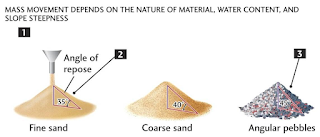Polymer: Non-biodegradable polymers
Polymers are widely used in the pharmaceutical industry due to their unique physical and chemical properties. They are used to improve drug solubility, stability, bioavailability, and to provide sustained drug release. While biodegradable polymers have gained popularity due to their environmental benefits, non-biodegradable polymers still have a place in the pharmaceutical industry. In this article, we will describe non-biodegradable polymers used in pharmaceuticals.
Non-biodegradable polymers are synthetic polymers that do not degrade under normal physiological conditions. They are commonly used in the pharmaceutical industry due to their high stability, durability, and resistance to degradation. Non-biodegradable polymers can be classified into two main categories: thermoplastics and thermosets.
Thermoplastics Thermoplastics are polymers that can be melted and re-molded multiple times without significant degradation of their properties. They are commonly used in the pharmaceutical industry to improve drug solubility, stability, and bioavailability. Some examples of non-biodegradable thermoplastics used in pharmaceuticals include:
Polyvinyl chloride (PVC): PVC is a widely used polymer in the pharmaceutical industry due to its excellent chemical resistance and flexibility. It is commonly used to manufacture IV bags, tubing, and other medical devices.
Polystyrene (PS): PS is a transparent, rigid, and lightweight polymer that is commonly used in the manufacturing of containers, packaging, and labware.
Polyethylene (PE): PE is a versatile polymer that is commonly used in the pharmaceutical industry to manufacture syringes, packaging materials, and medical devices.
Thermosets Thermosets are polymers that are cured or cross-linked to form a solid, insoluble material that cannot be melted or re-molded. They are commonly used in the pharmaceutical industry to provide sustained drug release over an extended period of time. Some examples of non-biodegradable thermosets used in pharmaceuticals include:
Polyurethane (PU): PU is a durable polymer that is commonly used in the pharmaceutical industry to provide sustained drug release. It is used to manufacture implants, wound dressings, and other medical devices.
Epoxy resins: Epoxy resins are commonly used in the pharmaceutical industry to manufacture drug delivery systems, such as implants and coatings. They provide excellent adhesion and durability, making them suitable for use in medical devices.
Phenolic resins: Phenolic resins are commonly used in the pharmaceutical industry to manufacture drug delivery systems, such as tablets and capsules. They provide excellent mechanical strength and resistance to moisture and other environmental factors.
In conclusion, non-biodegradable polymers still have a place in the pharmaceutical industry due to their unique properties and benefits. Thermoplastics and thermosets are two categories of non-biodegradable polymers that are commonly used in the pharmaceutical industry to improve drug solubility, stability, bioavailability, and to provide sustained drug release. While biodegradable polymers have gained popularity due to their environmental benefits, non-biodegradable polymers will continue to be used in the pharmaceutical industry due to their high stability, durability, and resistance to degradation.




Comments
Post a Comment